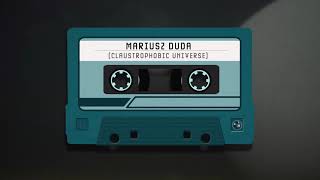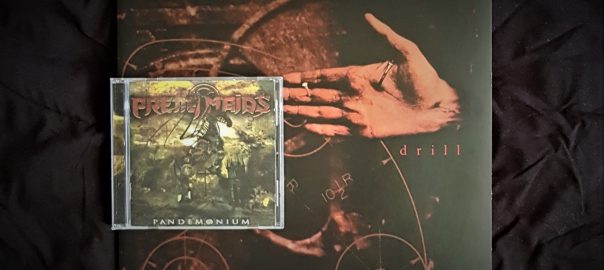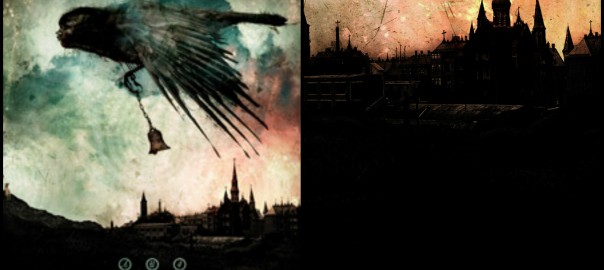Released April 23, 2021
Personnel:
- Mariusz Duda: pianos, keyboards, synthesizers, and all other sounds
Tracklist:
- Knock Lock
- Planets in a Milk Bowl
- I Landed on Mars
- Waves From a Flat Earth
- 2084
- Escape Pod
- Lemon Flavoured Stars
- Claustrophobic Universe
- Numbers and Denials
Last summer, during the first phase of the pandemic and some version of some lockdown that we all hoped would end the problem, Mariusz Duda took a break from working on Lunatic Soul to create a brief album of jagged electronic sounds, that he called Lockdown Spaces. It is not clear whether the plan for a trilogy originated with the first album or if the idea came later, but here we are: Claustrophobic Universe is the second instalment of what will be a trilogy that explores Duda’s early musical love, electronica.
Lockdown Spaces was created in about two weeks, and it shows. Claustrophobic Universe took more time and, well, it shows. The album continues the minimalist trajectory started byLockdown Spaces: even though both rely heavily on programmed sounds and synths and electronic instrumentation, Claustrophobic Universe is a more nuanced album, more carefully considered, more textural, at times edging towards industrial. Along with the digital pulses and anxious rhythms there are analogue bits and pieces creeping in: piano, voice, small percussive sounds. The tracks are either constructions of jittery synth-beats, or leaning towards ambient (“Waves from a Flat Earth” versus “I Landed on Mars”, for example), but Duda cannot escape melody: even in the most spare, programmed tracks, little melodic themes trickle through, repeating and weaving in and out among the beats. Some of these tunes are on the edge of familiarity — it wouldn’t surprise me if he has reworked older ideas and I just haven’t identified them yet.
There is a lot of repetition in these songs; themes and rhythms bounce back and forth, and move from track to track, a fitting reflection of the overall idea of the album: confined as many of us are to four walls and a restricted physical space, we seek escape from the internet-filtered reality and distorted facts into universes of our own making, and yet this too can be constrained. We bounce between the two of them.
Notable songs include “2084”, which reflects the feel of the first track “Knock Lock”, both beginning with hollow programmed percussive rhythm, but then ”2084” develops into a bouncy little melody. The title track starts with a warbly hypnotic piano and synthesizer melody that weaves its way through the whole song, draggy and with deliberate drop-outs, imperfect, rising to choppy percussion and back again, some breathy sounds — there is a sense here of striving to escape but not quite making it. The last track (“Numbers and Denials”) is downright rock ’n’ roll. Okay, not really, but it starts out heavy, chugging nicely along, before it fades away into echoey keyboard plinks and white noise.
My favourite track so far is “Escape Pod”, a rather beautiful diversion after all the jittery distortion and processed noises of the previous songs. Starting with an actual piano melody it gathers momentum with drums (I’m sure they are programmed but they have a nice hefty feel), a throbbing repetitive bass rhythm, small percussive noises — a lovely, almost soothing song. It is reminiscent of material from Eye of the Soundscape.
With Claustrophobic Universe, Mariusz Duda has demonstrated that the breadth of his creativity goes well beyond what we have heard from him so far. This is nowhere near the heavy prog of Riverside, the lush, melodic sounds of Lunatic Soul, or even the electronic ambience of Eye of the Soundscape. Lockdown Spaces was a hint; Claustrophobic Universe takes it to the next level and proves that he can create and develop music that draws from a rather different source than his main projects, or at least draws from it differently. I don’t think it is quite as accomplished as Lunatic Soul or Riverside, but he’s been at those a lot longer. it certainly makes one look forward to what he will do with the third instalment.
As befits music based on digital noises and early musical influences, the releases are initially available as downloads, by streaming, or on cassette. Full physical releases will become available after the trilogy is complete.


